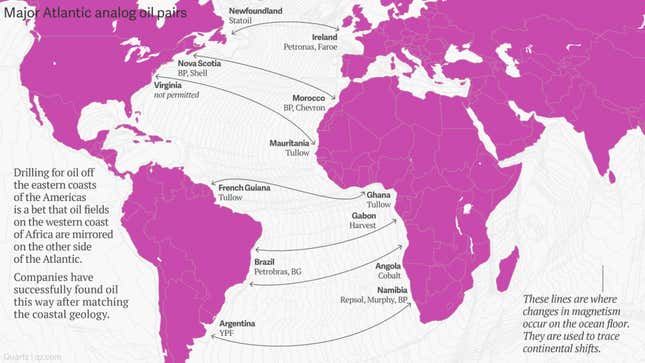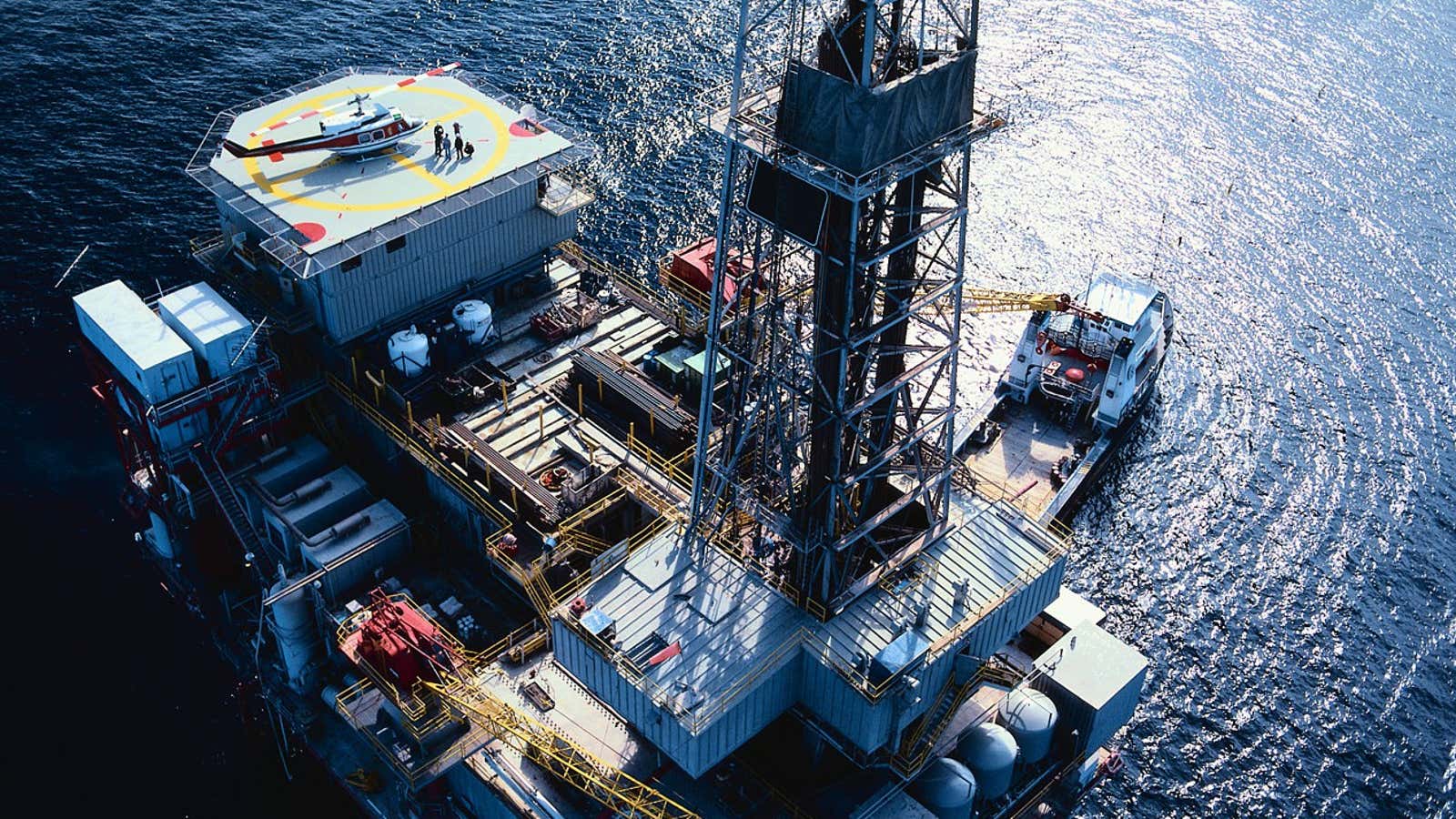When US president Barack Obama reversed himself this week and barred oil exploration along the country’s eastern seaboard, he frustrated the practitioners of a quirky obsession followed from the cold Canadian waters off Newfoundland all the way south to Brazil. This interest, mirrored across the ocean, along the west coast of Africa, is focused on the arcane corner of scholarship surrounding the 200-million-year-old breakup of the ancient supercontinent of Pangaea.
Oil companies are eager to look for oil and natural gas offshore from the states of Virginia, Georgia, and the Carolinas for a singular reason—because one of the largest gas finds in recent memory took place 4,100 miles east, across the Atlantic, offshore from Mauritania. Up until 200 million years ago, Mauritania and its neighbor Senegal were conjoined with these US states as part of Pangaea. Since these now-distant lands share that ancient geology, it stands to reason that the offshore US east coast might have gas or oil, too.
This approach to oil geology, which in industry argot is called analog exploration, has proven itself numerous times. In 2006, Tullow Oil made a large petroleum discovery in the waters of Ghana, south of Mauritania. The company then went 3,600 miles straight west across the Atlantic to French Guiana, knowing that it was once fused to Ghana. There, the company made another large oil discovery (see map below). In a chain reaction, ExxonMobil, exploring the same general geological region of South America, last year made a gigantic oil discovery just to the north in Guyana.
Analog exploration is being practiced up and down what’s called the Atlantic Margin. BP has taken offshore acreage in both Morocco and the Canadian province of Nova Scotia, which also were once conjoined. Relying on the science of analog exploration, Shell is close to completing a well in offshore Nova Scotia.

“They are reconstructing continents in geologic time to look for similar things in different locations,” Bobby Ryan, chief of global exploration at Chevron, tells Quartz. “The exploration efforts seem diverse geographically. But they are not diverse geologically.”
That’s why, on March 15, when Obama banned drilling in the Atlantic—reversing his own decision made a year earlier to allow such work as of 2021—he unleashed a furious response from the oil industry. “The decision appeases extremists who seek to stop oil and natural gas production which would increase the cost of energy for American consumers and close the door for years to creating new jobs, new investments and boosting energy security,” said Jack Gerard, president of the American Petroleum Institute, the industry’s lobbying arm in Washington.
What Gerard did not add was that, at least in the US, there will be no analog exploration of the Pangaean breakup.
